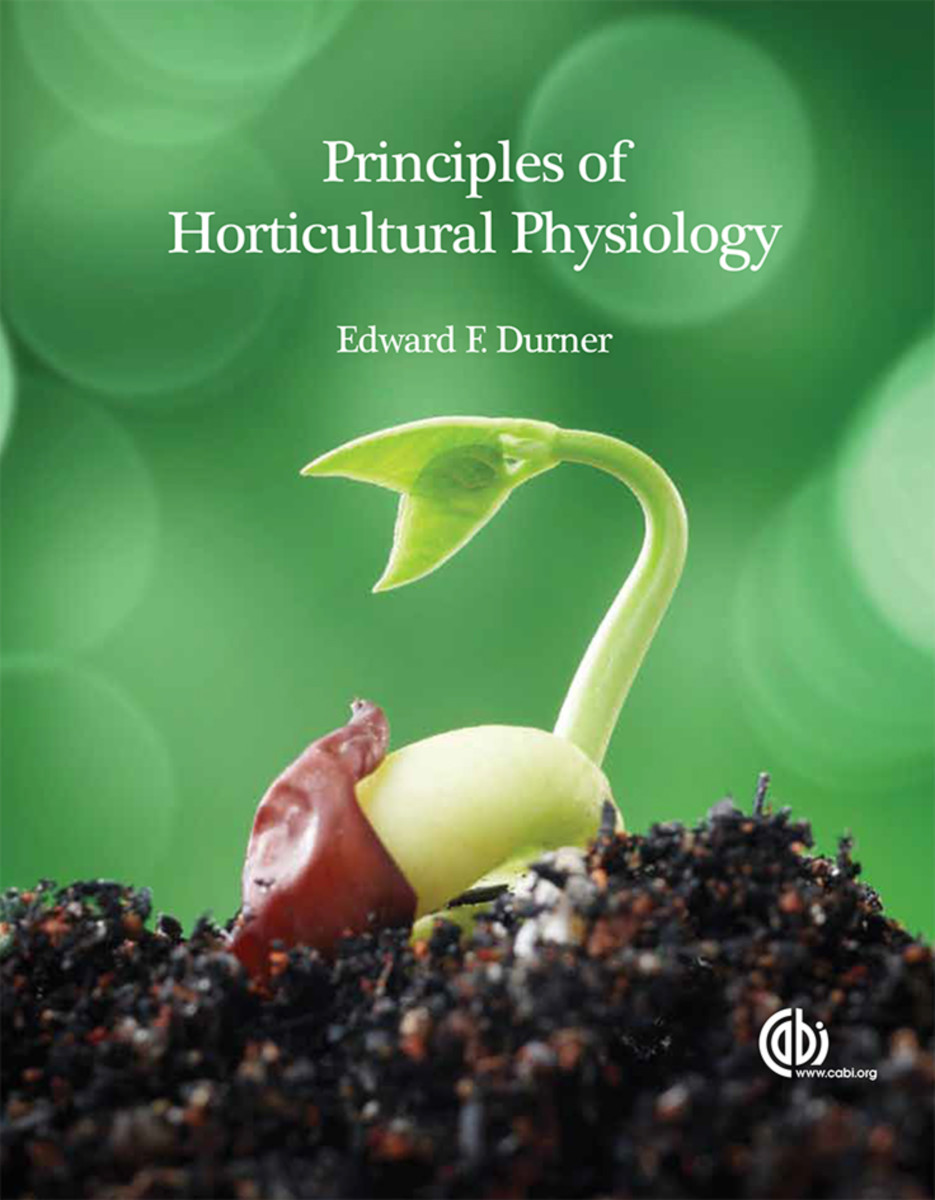Principles of Horticultural Physiology
- Publisher
CABI - Published
9th July 2013 - ISBN 9781780640259
- Language English
- Pages 416 pp.
- Size 7.5" x 9.625"
- Request Exam Copy
- Publisher
CABI - Published
9th July 2013 - ISBN 9781780643069
- Language English
- Pages 416 pp.
- Size 7.5" x 9.625"
- Request Exam Copy
Understanding the physiology of plants is fundamental to horticultural studies and practice. Aimed at undergraduates, this major textbook covers applied aspects of physiology related to horticultural crops. The author discusses specific physiological processes in relation to horticultural management, maintaining a focus throughout on how horticultural practices influence plant productivity and quality.
Principles of Horticultural Physiology begins by guiding students through the basics of plant physiology; plant anatomy and plant classification, before covering plant hormones, growth and development, and factors related to the external environment including water, light, temperature and soil. Greenhouse culture is also discussed, as well as practical management techniques including seeding, pruning and grafting. The book concludes with real-world horticultural considerations of harvesting crops, packaging and transportation, postharvest physiology and marketing plant products, as well as a fascinating chapter on plants and human nutrition. One of the text's chief virtues is the accessible way the author conveys sometimes complex information in an easy to follow style. An ideal resource for undergraduate students of horticulture, this book will act as a guide throughout the entire course.
1. Horticulture - Whole Plant Integration of Many Disciplines
2. The Plant Hormones
3. Growth, Development and Plant Movement
4. Physiology of Growth in Specific Organs: Roots, Stems and Leaves
5. Physiology of Growth in Specific Organs: Flowers, Fruit and Seeds
6. Some Abiotic Plant Stressors - Oxygen, Minerals and Salt
7. Water and Plants
8. Light Energy and Plant Function
9. Temperature Effects on Growth and Development of Plants
10. The Soil and Its Environment
11. The Greenhouse Environment
12. Seeding and Seedling Establishment
13. Pruning, Training, Growth and Plant Size
14. Grafting and Rootstocks
15. From Harvest to Market
16. Post-harvest Physiology
17. Human Nutrition, Phytonutrients, Nutraceuticals and Horticulture
Edward F. Durner, PhD
Edward F. Durner received his BS in Horticulture from the University of Maryland, his MS in Horticulture from Virginia Tech, and his Ph.D. in Horticultural Science from North Carolina State University. He joined the Horticulture Department at Rutgers in 1986 and conducted tree fruit physiology research, including peach flower bud cold hardiness, rootstock – scion interactions in peach and apple, and consumer acceptance of disease resistant apple cultivars. From the late 1990’s through 2005 his research focused on photoperiod and temperature conditioning of strawberry plug plants for off-season production. From 2006 – 2016 my research program was placed on hiatus to serve as Director of the Student Sustainable Farm at Rutgers, a student-run 5-acre CSA (Community Supported Agriculture) farm with 50 to 175 shareholders that provided experiential learning of organic vegetable, herb and flower production for students at Rutgers – The State University of New Jersey. In 2016 he returned to his roles in teaching and research, investigating alternative strawberry production systems and plant conditioning and goldenberry (Physalis peruviana) as a new fruit crop for North America. He teaches or has taught Applied Plant Science Statistics, Applied Physiology of Hort Crops, Agroecology Practicum, Fruit Production, Seminars in Horticulture, and Perspectives on Agriculture and the Environment.


